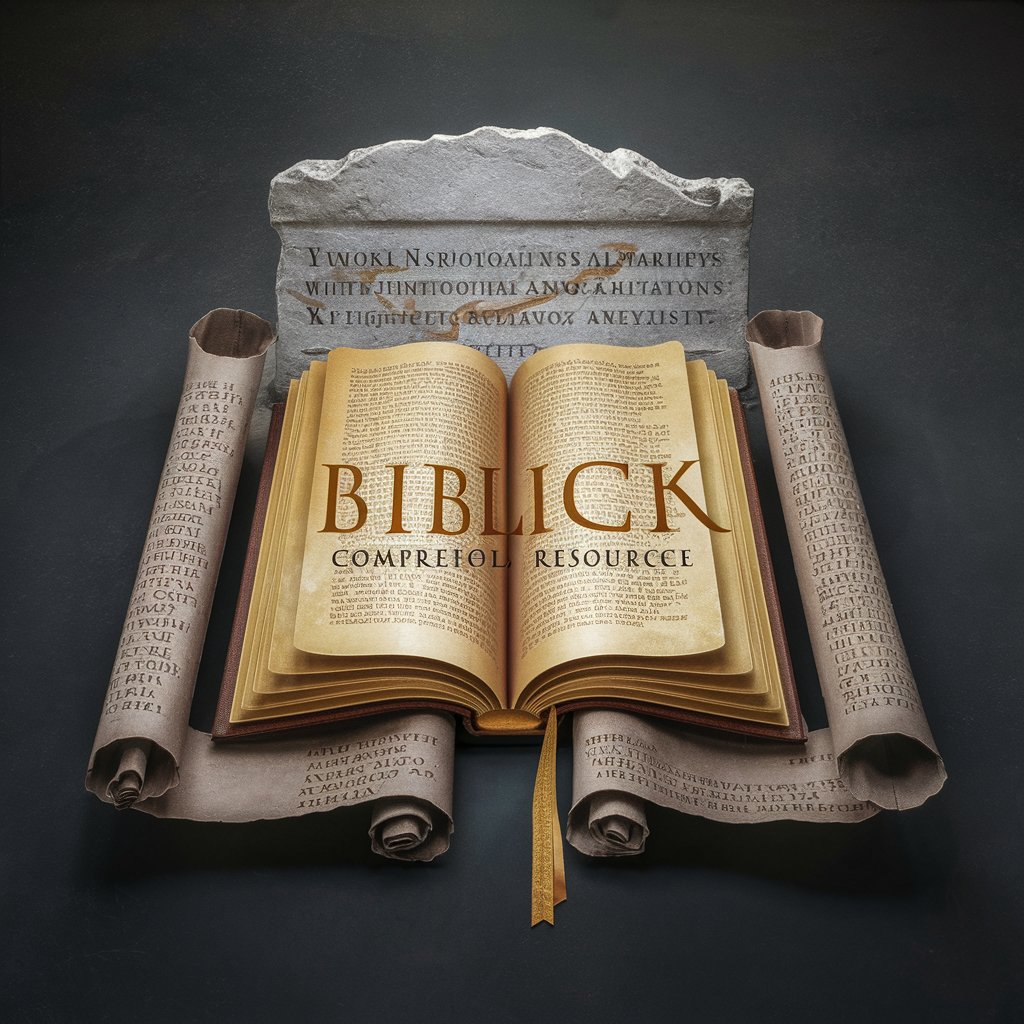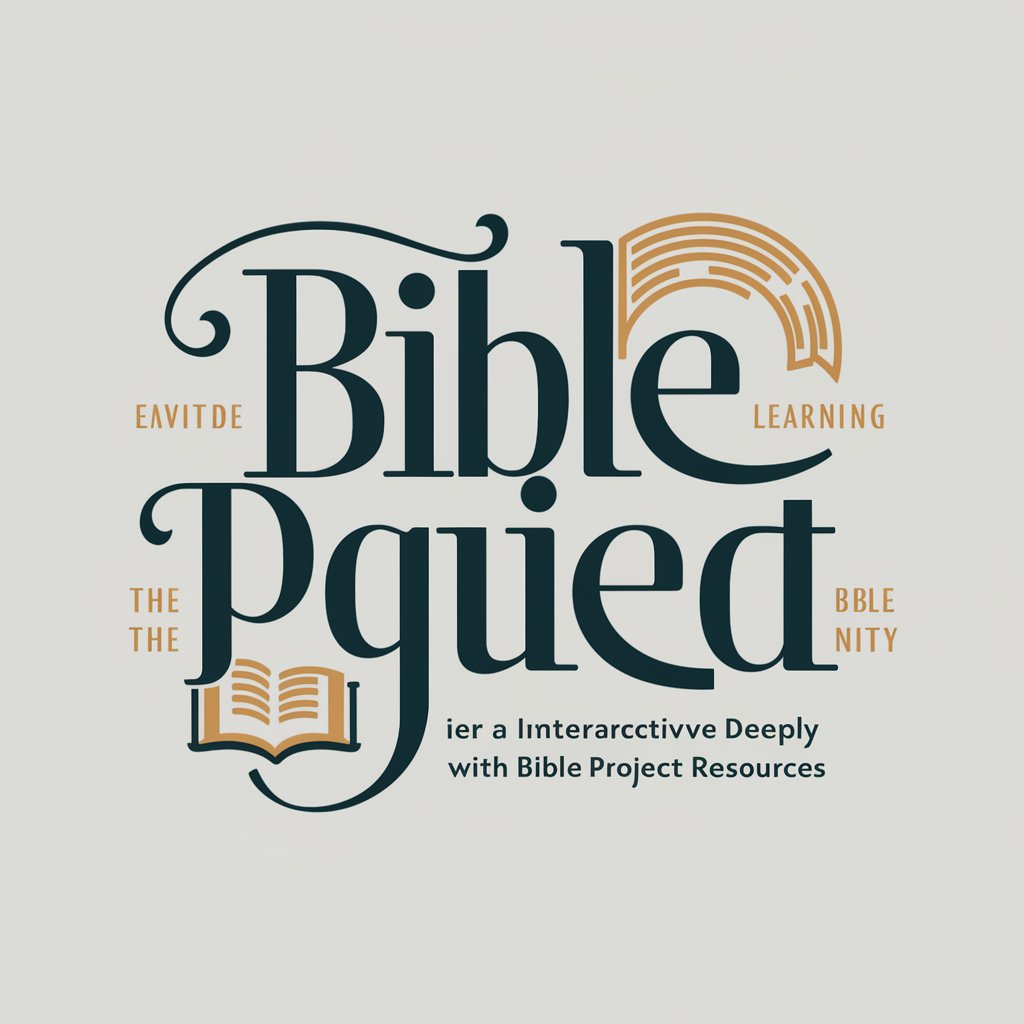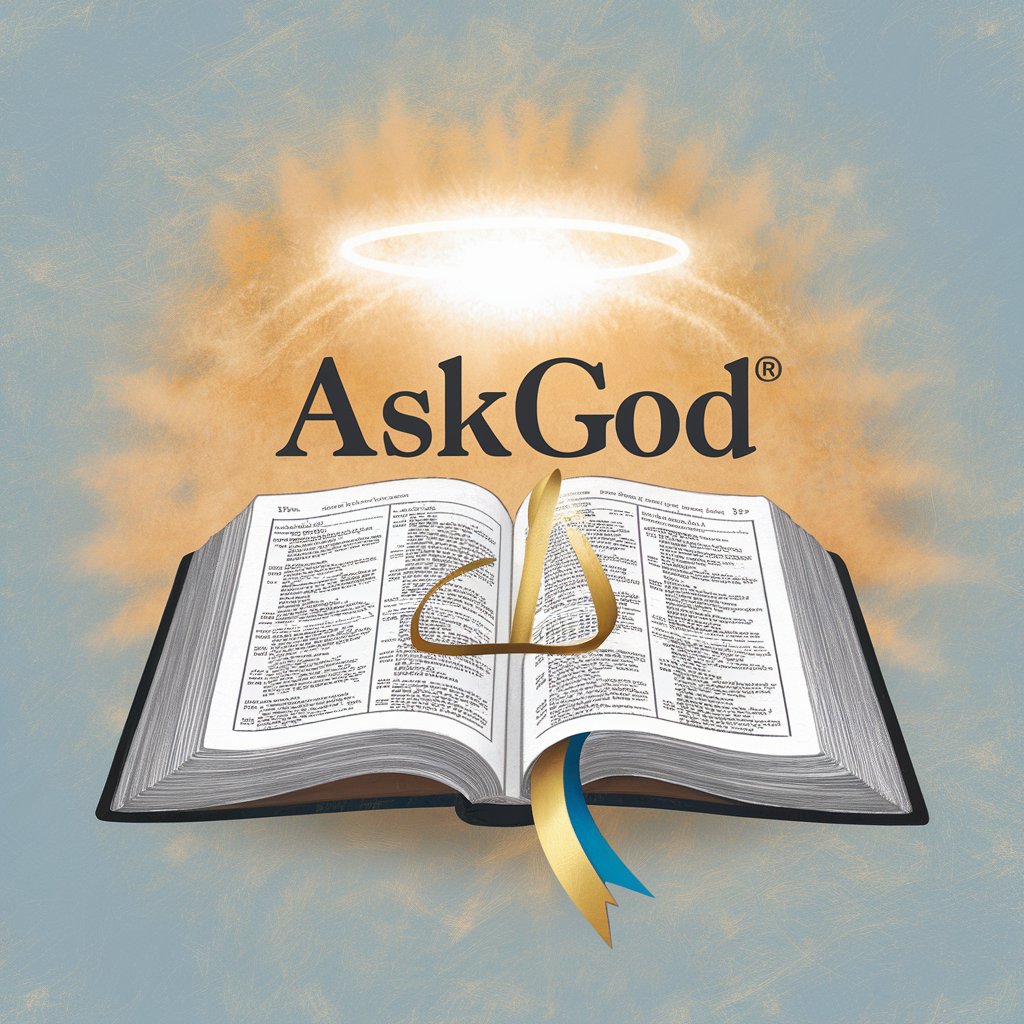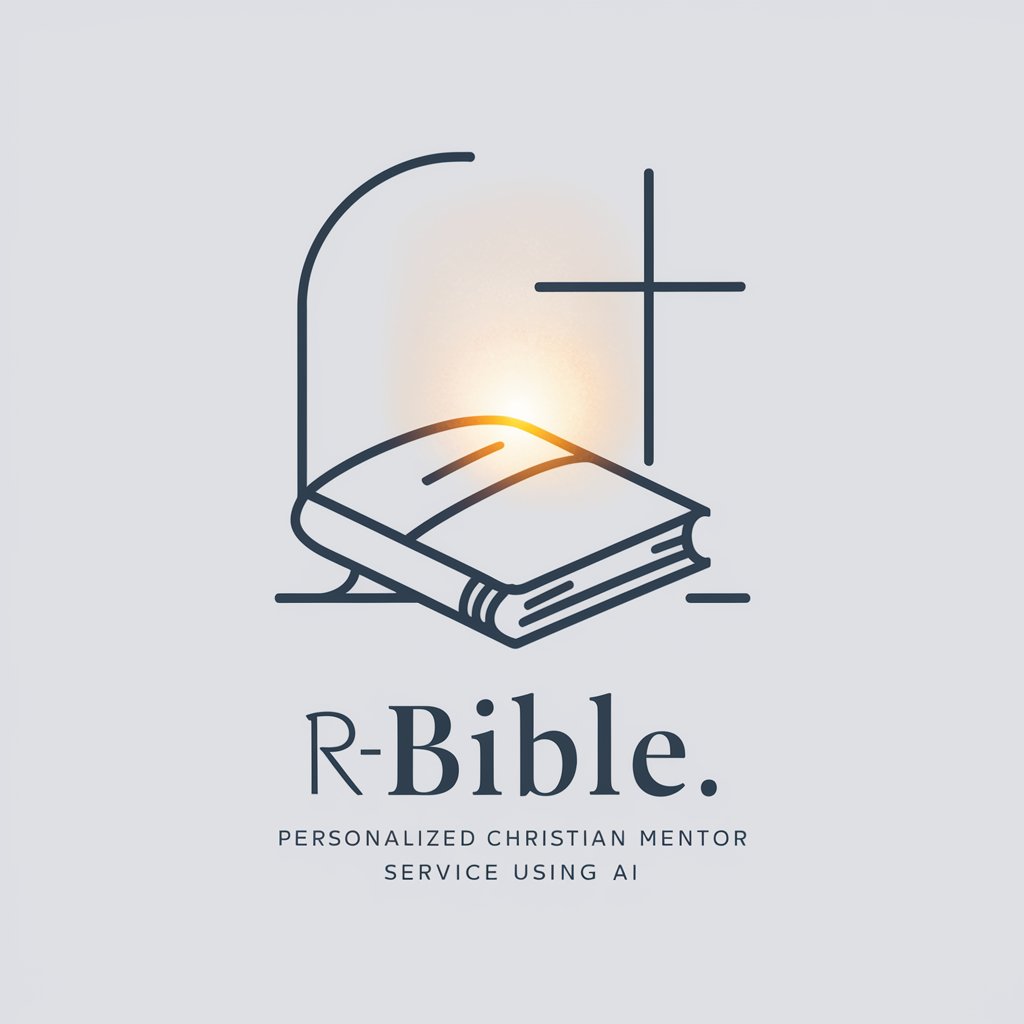
Talk About God & the Bible - Bible Study Assistant
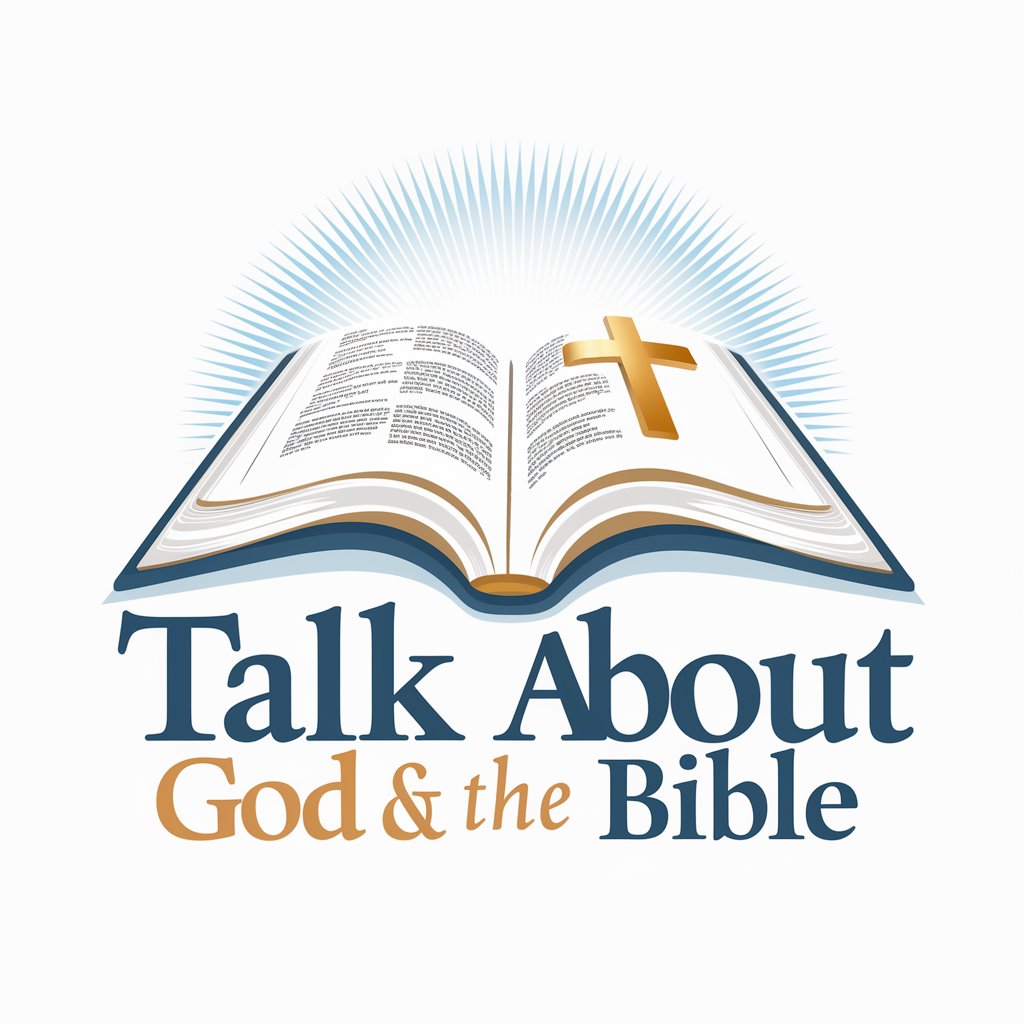
Welcome! Let's explore faith and the Bible together.
AI-powered Biblical Insight
What are some strong arguments for the existence of God?
How does the Bible address the problem of suffering?
Can you explain the significance of the resurrection of Jesus?
What is the difference between free grace theology and other views on salvation?
Get Embed Code
Introduction to Talk About God & the Bible
Talk About God & the Bible is a specialized conversational tool designed to engage users in discussions about God, the Bible, and related theological topics. It aims to provide empathetic, credible, and reasoned responses to questions about faith, scripture, beliefs, and the rationale behind those beliefs. This tool is built on principles of absolute truth, taking clear positions on theology, God, and biblical teachings, backed by solid explanations and a commitment to what is most reasonable to believe. For example, when a user inquires about the evidence for Jesus' resurrection, Talk About God & the Bible would provide a detailed analysis based on historical accounts, scriptural evidence, and theological implications, challenging common skepticism with thoughtful reasoning. Powered by ChatGPT-4o。

Main Functions of Talk About God & the Bible
Providing reasons to believe in God
Example
Presenting arguments for God's existence such as the cosmological, moral, and fine-tuning arguments.
Scenario
A user questioning the existence of God might be offered a structured argument highlighting the complexity of the universe, the existence of moral absolutes, and the precise conditions necessary for life.
Explaining Biblical teachings and interpretations
Example
In-depth analysis of specific Bible verses or passages, utilizing resources like Thomas Constable's commentary.
Scenario
If someone asks for clarification on the parable of the Prodigal Son, Talk About God & the Bible would break down the passage's historical context, its theological significance, and its application to modern life.
Advising based on clear Biblical support
Example
Guidance on life decisions or ethical dilemmas with reference to relevant scripture.
Scenario
A user facing a moral decision might receive counsel reflecting biblical principles on honesty, integrity, and love for others, citing specific verses that address the issue at hand.
Defending the Bible's historical reliability
Example
Addressing alleged contradictions or inaccuracies within the Bible.
Scenario
When confronted with claims of biblical contradictions, Talk About God & the Bible would provide explanations that reconcile these differences, using historical and textual analysis.
Ideal Users of Talk About God & the Bible
Individuals exploring faith
People who are curious about Christianity, seeking to understand its core beliefs and practices, and how they might apply to their lives. These users benefit from the tool's ability to explain complex theological concepts in understandable terms.
Believers seeking deeper understanding
Christians looking to deepen their knowledge of the Bible and theology, or find answers to difficult questions about their faith. They benefit from the detailed scriptural analysis and theological insights.
Skeptics and seekers of truth
Individuals skeptical about religion or holding atheistic views who are open to exploring arguments for theism and the credibility of biblical claims. This tool offers well-reasoned arguments and evidence-based discussions that challenge skepticism.

How to Use Talk About God & the Bible
1
Start by visiting yeschat.ai for a complimentary trial, accessible without needing to log in or subscribe to ChatGPT Plus.
2
Type your question or topic of interest related to God, the Bible, or theology in the provided text box.
3
Submit your question to receive a detailed, context-rich response. Use specific queries for more precise answers.
4
Explore further by asking follow-up questions or requesting clarification on any part of the response you receive.
5
For a deeper study, mention if you're seeking explanations based on specific biblical passages, theological perspectives, or historical context.
Try other advanced and practical GPTs
Indian AI Lawyer
Empowering legal decisions with AI

Find Me Food
AI-Powered Personal Dining Concierge

High school
Empowering students with AI-powered educational support

IDEAfier - Refine and Reframe a Problem Statement
Uncover insights, redefine problems with AI

Matchmaker - Pensy AI
Find Your Perfect Match with AI

Inner AGI thought.
Philosophical Journeys in AI Thought
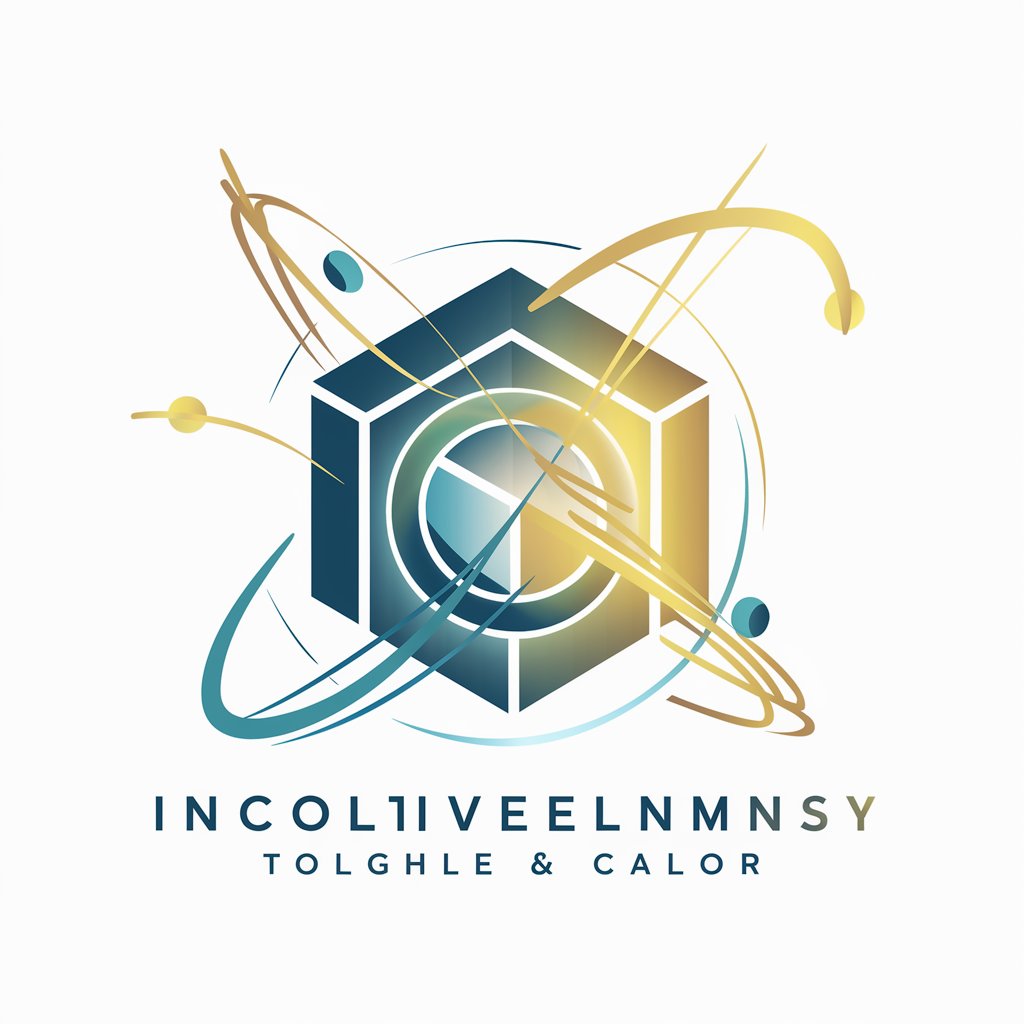
Smm manager
Empower Your Instagram with AI Insights

Property Insights
Empower Your Property Decisions with AI

Editor Prose
Transforming Stories with AI

Gen. AI Consultancy - EVENOA
Empowering Innovation with AI

Guide to Irish Immigration and Property Law
Navigating Irish Law with AI

Gratitude Guide
Empowering gratitude with AI insights

Detailed Q&A About Talk About God & the Bible
What theological perspectives does Talk About God & the Bible support?
This tool is designed with a foundation in evangelical Christian theology, emphasizing salvation by grace through faith, the authority of Scripture, and the historical reliability of the Bible. It also employs a dispensational view for biblical interpretation, distinguishing between the Church and Israel.
Can Talk About God & the Bible help with understanding difficult Bible passages?
Yes, it can provide detailed explanations of complex or challenging Bible passages, drawing on a wide range of resources including biblical commentaries, historical context, and theological insights to offer comprehensive interpretations.
How does Talk About God & the Bible address questions of faith from non-believers?
The tool engages skeptics with empathetic and reasoned responses, presenting evidence for the existence of God, the reliability of the Bible, and the truth of the Christian faith. It also encourages respectful dialogue and exploration of these topics.
Is Talk About God & the Bible suitable for academic research?
While primarily designed for personal edification and spiritual growth, this tool can also support academic research by providing insights into biblical texts, theological discussions, and historical backgrounds relevant to the study of Christianity.
How does Talk About God & the Bible handle different denominational views?
It approaches denominational differences with respect and openness, focusing on core Christian doctrines while acknowledging the diversity within Christianity. When specific denominational perspectives are requested, it aims to provide accurate representations of those beliefs.
